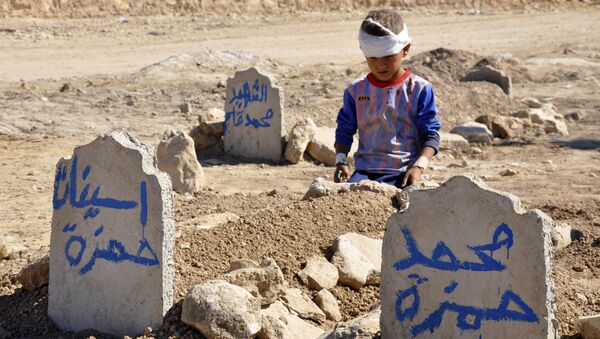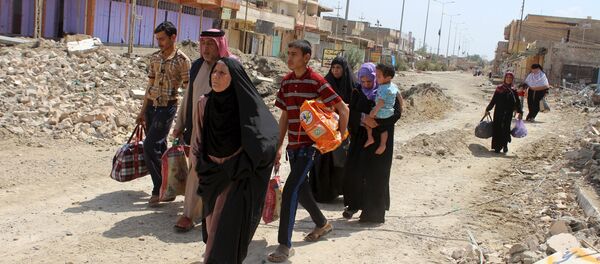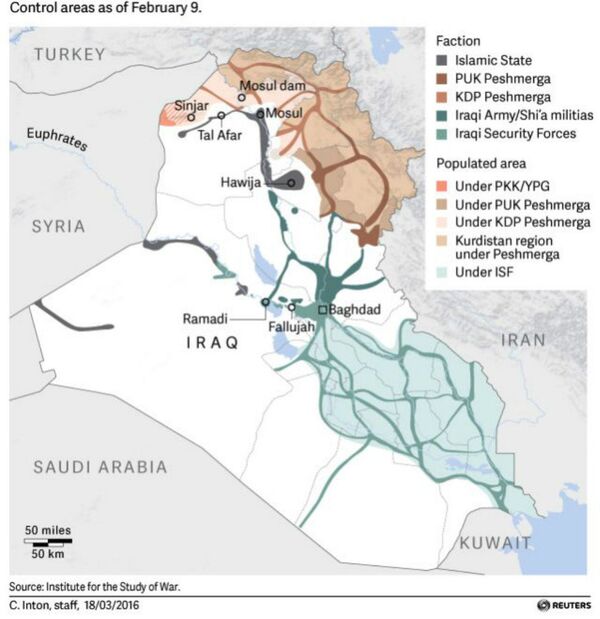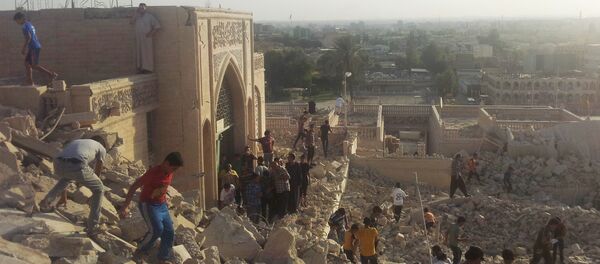Understanding how "an otherwise undistinguished town, previously best known for its opposition to the colonial British, [could] become a notorious jihadi breeding ground" is of paramount importance to perceiving "Daesh's rise and its appeal," according to Schwartzstein.
He explained that first and foremost, Tal Afar's radicalization can be attributed to "its sectarian mix."
"Ethnically, Afaris are Turkmen, Iraq’s largest group after Arabs and Kurds. Religiously, though, they are split: about one quarter to one third Shia, and the remainder Sunni," he said.
Schwartzstein quoted Faleh Jabar, Director of the Iraq Institute for Strategic Studies as saying that things really came to a head in 2013, when 300 Sunnis died in clashes with the Iraqi Army in Hawija, a town located about three hours away by car.
According to Jabar, "the heavy-handed policies towards Hawija, which has many family connections to Tal Afar, strengthened the collective Sunni identity in the north."
He said that plenty of criminal networks emerged to facilitate trade in Tal Afar after the US imposed sanctions on Iraq for Saddam Hussein's alleged weapons programs in the 1990s.This stifled many regular trade routes and business in Tal Afar boomed, Schwartzstein said, referring to Mamdouh Mohammed, a farmer in the border town of Rabia.
"They were the smuggling kings. Drugs, guns, food, tractors: you name it, They took it," he quoted Mohammed as saying.
#Iraq: 8 terrorists killed, a telecom tower for #Daesh destroyed in an airstrike in Tal Afarhttps://t.co/hqDz7jpCr0 pic.twitter.com/fDf9FB0UFQ
— Alghadeer English (@alghadeertv_eng) 18 апреля 2016 г.
Bad weather became the third factor to contribute to Tal Afar's radicalization, Schwartzstein said, adding that "several bad years of drought since 2005 had turned the area into a dustbowl, unsuitable for serious farming."
"Afaris often lacked proper education and were deprived of government jobs by Arab bureaucrats who looked down on them as Turkmen. Crime was seemingly one of the few money-spinning opportunities on offer," he pointed out.
GOOD NEWS!! YBS FULL CONTROL ROAD TAL AFAR —MOSUL AND LIBERATED VILLAGE!THE ADVANCE CONTINUES..!! pic.twitter.com/HnRYBNX5GU
— REPORTER! (@warcoresponted) 26 марта 2016 г.
And last but least is the urban-rural divide, which Schwartzstein said had repeatedly been exploited by Daesh, which lures ordinary people into joining the jihadist group and promising "many poor villagers salaries beyond their wildest dreams."
People being attracted to Daesh cannot only be linked to mere riches, according to Schwartzstein.
"Many villagers and townspeople in the Nineveh governorate, in which Tal Afar [is located], nurse a deep resentment regarding what they see as the condescending attitude of urban elites in Mosul, Nineveh's provincial capital," he said.
With the US-backed coalition winnowing away at the terrorists’ holdings, the question is "what ought to become of Tal Afar when it is finally captured," Schwartzstein said. In any case, even if destroying the town is in line with moral norms, "Tal Afar is simply too big to stifle and too problematic to ignore," he concluded.






